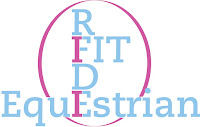Many people find it impossible to keep fit and healthy over
Christmas. Everywhere you turn, you are bombarded by food and drink: countless Christmas
parties, delectable adverts on the telly, mince pies (home-made by your gran,
so it would be rude to refuse!), and of course Prosecco by the bucket load. The
most exercise many of us manage over Christmas is the walk to the fridge and
back from the sofa. With all that food and drink in your tummy, it’s impossible
to even contemplate exercise. Isn’t it?
 As a realist, I am not suggesting anybody sticks rigidly to
a diet throughout December. It is a month of celebration and joy and we should
relax and relish every moment of the festive period. However, the nagging
realist in me at the same time, knows how many people feel in January after all
of the excesses of the festive period… sluggish, overweight, unfit, depressed,
with steely renewed willpower and New Year’s resolutions to change all of the
‘damage’ that we did over Christmas. Often, people put too much pressure on
themselves in January with unsustainable New Year’s Resolutions, which
consequently fail by week 3, and nobody likes to fail. Failure is accompanied
by feelings of worthlessness and reduced self-esteem.
As a realist, I am not suggesting anybody sticks rigidly to
a diet throughout December. It is a month of celebration and joy and we should
relax and relish every moment of the festive period. However, the nagging
realist in me at the same time, knows how many people feel in January after all
of the excesses of the festive period… sluggish, overweight, unfit, depressed,
with steely renewed willpower and New Year’s resolutions to change all of the
‘damage’ that we did over Christmas. Often, people put too much pressure on
themselves in January with unsustainable New Year’s Resolutions, which
consequently fail by week 3, and nobody likes to fail. Failure is accompanied
by feelings of worthlessness and reduced self-esteem. What if somebody had a suggestion that would break this
cycle of negativity for you RIGHT NOW? Starting in December? As it happens, I
can help you there. Start exercising. Today. Simples. Little and often, keeping
it to a level that you are comfortable. This could be a brisk walk, swimming,
running, or class work. Assuming you have at least a few days off work, the
asset you have over the festive period that you don’t have in January is the
benefit of time. Time off away from the day-to-day stresses and distractions of
life, that take your focus away from what is most important. YOU. Start to
focus on your new fitness regime in December, and you will compensate for the excesses of the parties and meals. You will feel happier, healthier and
glowing by January. You may even weigh yourself on January 2nd and
find your weight hasn’t crept up like normal and you don’t need to punish
yourself for a month.
What if somebody had a suggestion that would break this
cycle of negativity for you RIGHT NOW? Starting in December? As it happens, I
can help you there. Start exercising. Today. Simples. Little and often, keeping
it to a level that you are comfortable. This could be a brisk walk, swimming,
running, or class work. Assuming you have at least a few days off work, the
asset you have over the festive period that you don’t have in January is the
benefit of time. Time off away from the day-to-day stresses and distractions of
life, that take your focus away from what is most important. YOU. Start to
focus on your new fitness regime in December, and you will compensate for the excesses of the parties and meals. You will feel happier, healthier and
glowing by January. You may even weigh yourself on January 2nd and
find your weight hasn’t crept up like normal and you don’t need to punish
yourself for a month.
Do more of the fun part that keeps you fit too! Ride as much as you can over Christmas, then you can spend
January ramping up your preparations for the coming season, rather than
bringing your horse steadily back into work again. Use the extra time you have for doing
raised pole work, and long hacks to help your horse’s fitness as well as your
own balance and stamina. Don’t just take my word for it. Go on, give it a go.
You won’t regret it!












